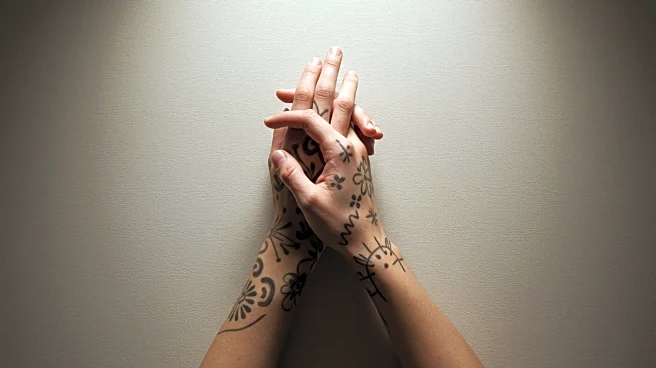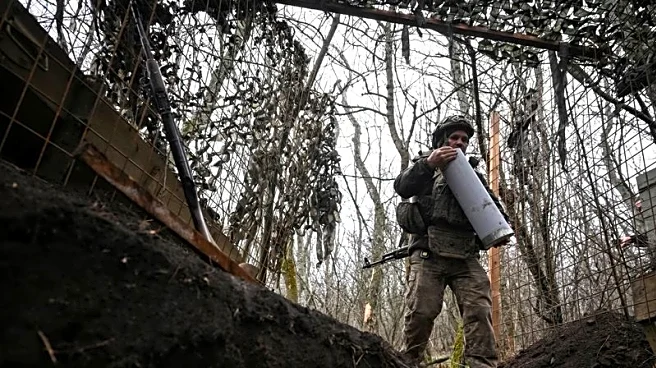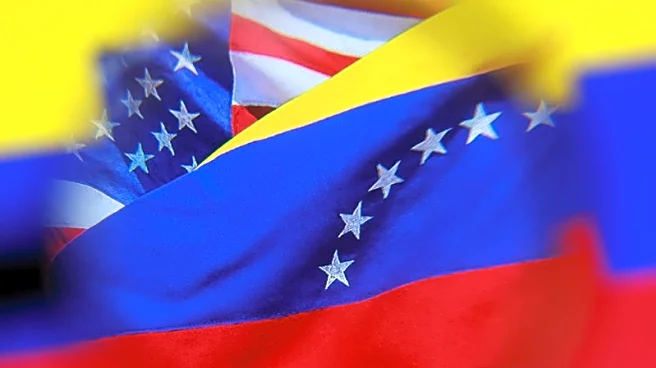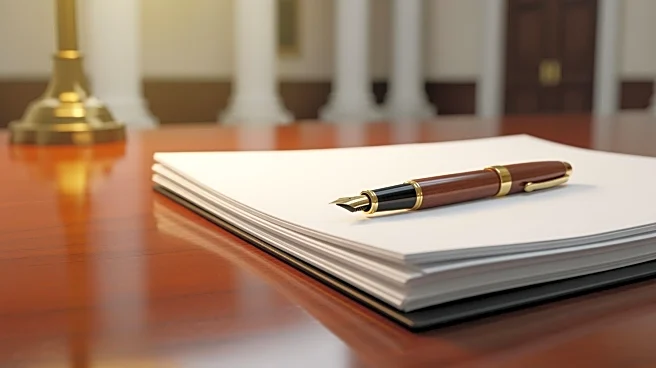What is the story about?
What's Happening?
Kino Lorber has announced the U.S. theatrical release of the documentary 'Put Your Soul on Your Hand and Walk,' directed by Sepideh Farsi. The film, which provides an intimate look at life in Gaza through video calls with Palestinian photojournalist Fatma Hassona, will premiere in New York on November 5, with further releases in Los Angeles and other cities on November 14. The documentary, which debuted at the Cannes 2025 ACID section and was shown at the Karlovy Vary Film Festival, offers a poignant perspective on the ongoing conflict in Gaza. Tragically, Hassona was killed in an Israeli missile strike shortly after the film's selection for Cannes was announced.
Why It's Important?
The release of 'Put Your Soul on Your Hand and Walk' in the U.S. is significant as it brings attention to the human impact of the Gaza conflict, highlighting the personal stories and struggles of those living under siege. The film's critical acclaim underscores its potential to influence public perception and policy discussions regarding the Israeli-Palestinian conflict. By showcasing the resilience and hope of individuals like Hassona, the documentary may foster greater empathy and understanding among U.S. audiences, potentially impacting future diplomatic and humanitarian efforts in the region.
What's Next?
Following its U.S. release, the documentary is expected to participate in the awards season, which could further amplify its message and reach. The film's distribution by Kino Lorber suggests a strategic push to engage with audiences across major U.S. cities, potentially sparking discussions and debates on the broader implications of the Gaza conflict. As the film gains visibility, it may also attract attention from advocacy groups and policymakers interested in Middle Eastern affairs.
Beyond the Headlines
The documentary's release raises ethical questions about the role of media in conflict zones and the responsibilities of filmmakers in portraying sensitive subjects. It also highlights the risks faced by journalists and filmmakers in war-torn areas, emphasizing the need for greater protection and support for those documenting human rights issues. The film's narrative may contribute to a broader cultural shift towards more nuanced and human-centered storytelling in conflict reporting.















